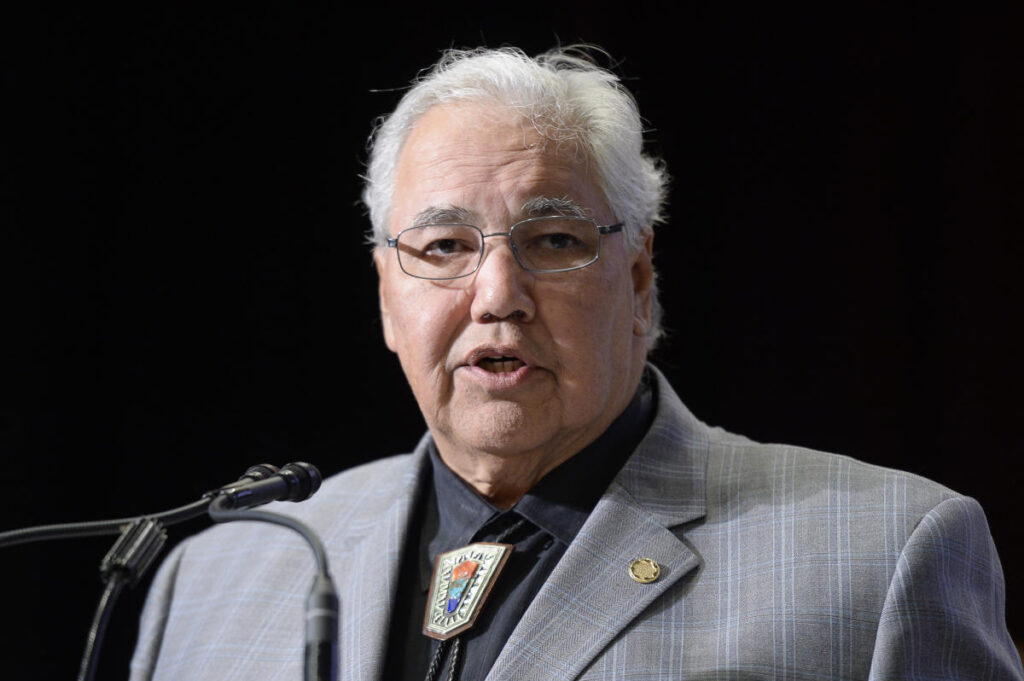Murray Sinclair, a prominent figure in Canada’s legal landscape and advocate for Indigenous rights, passed away at the age of 73 in a Winnipeg hospital. His family announced that he died peacefully on a Monday morning. Renowned for his contributions to the Truth and Reconciliation Commission (TRC), which investigated the troubled legacy of residential schools for First Nations children, Sinclair’s death marks the loss of a dedicated champion for social justice. Sinclair’s life was marked by significant milestones, including becoming the first Indigenous judge in Manitoba and the second in Canada, as well as serving as a senator from 2016 to 2021.
Sinclair’s groundbreaking work with the TRC involved leading nationwide hearings that collected testimonies from those affected by the residential school system. Between the 19th century and the 1970s, over 150,000 First Nations children were forcibly removed from their families to attend these schools, aimed at assimilating them into Canadian society. The children were often subjected to severe mistreatment, including physical and verbal abuse, with many forced into religious conversion and stripped of their languages and cultural identities. Reports suggest that up to 6,000 students died in these institutions, underscoring the devastating impact of this system on Indigenous communities.
The Canadian government formally acknowledged the abuses committed in the residential schools through a parliamentary apology issued in 2008, acknowledging the rampant physical and sexual abuse endured by students. Sinclair was instrumental in exposing this tragic chapter of Canada’s history, as evidenced by the TRC’s final report published in 2015, which characterized the treatment of Indigenous children in residential schools as nothing short of cultural genocide. This report served as a catalyst for ongoing discussions about reconciliation and the need for healing between Indigenous and non-Indigenous peoples in Canada.
In recognition of his lifelong commitment to advocating for Indigenous rights, Sinclair received the Order of Canada in 2022, one of the nation’s highest honors. His work not only created a framework for acknowledging past injustices but also inspired a broader conversation about the rights and freedoms of Indigenous peoples across the country. Prime Minister Justin Trudeau paid tribute to Sinclair’s legacy, noting his role in challenging Canadians to confront dark aspects of their history while emphasizing the importance of learning from these experiences to create a better future.
Born in 1951 and raised on the former St. Peter’s Indian Reserve, a member of the Peguis First Nation, Sinclair embarked on a legal career that began with his graduation from the University of Manitoba’s law school in 1979. He dedicated nearly three decades of his life to the judiciary, where he earned a reputation for fairness and integrity. Additionally, he chronicled his personal struggles in his memoir, revealing his battle with congestive heart failure, which ultimately led to extended hospital stays in his later years.
Murray Sinclair’s passing represents not only the loss of an esteemed legal authority but also the end of an era for Indigenous advocacy in Canada. His relentless pursuit of justice, truth, and reconciliation has left an indelible mark on the landscape of Canadian society. As discussions continue regarding the pathways to healing and reconciliation, Sinclair’s teachings and experiences will undoubtedly guide future efforts to address the historical injustices faced by Indigenous communities. His legacy as a leader, a judge, and an advocate will continue to resonate as Canada strives to confront its past and work towards a more equitable and inclusive future.

